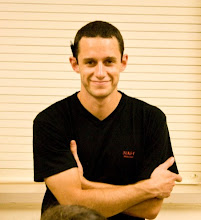Okay, that's my only plug. I'm done now. But the title does still go along with the subject of this blog: the difference in presidential elections between the United States and France and the perception of those elections. So now some of you might want to stop reading, but don't! I'll try to make it interesting.
I decided I wanted to write about this after the last week or so as the U.S. presidential race has been gaining momentum. In the past I was asked by a few kids who I preferred ( *cough* Obama *cough*), but in the last couple days, as a result of "Super Mardi," I've gotten a lot more questions. Today I was actually asked to explain the United States presidential election process in my class ECJS - Civic, Judicial, and Social Education. Which was kind of difficult for me to do, and although I explained the process pretty well, it still confused the kids in my class. I don't blame them, and here's why:
France hasn't had nearly as stable of a government as the United States. Since 1789 and the first French revolution, there have been five republics, two empires, and one return to monarchy. That means that there have been five different democratic constitutions among the other authoritarian periods, and with all this, lot of change in the election process. And because of all these changes there have never been amazingly powerful political parties, like the Democrat and Republican parties. Instead of being obliged to run under a large party like this with an incredibly long primary election process, presidential hopefuls can run and try to get enough votes in the first election. In the first election, the two candidates with the most votes move onto a second election a month later, which gives voters enough time to decide who they would like to vote for finally. Another large difference in the election processes is the presence of delegates. When the constitution was created and for a long time after, with the enormous size of the United States it of course made sense to have delegates to bring votes to be counted. Electronic voting hasn't existed for a little while....
So hopefully I made some sense of that, but the main point I wanted to make was the perception of these processes. After being asked by numerous kids and plenty of adults as well, I've realized that the U.S. elections are watched much more carefully than the French elections. The only reason I knew who the new French president before I came here was because I knew I was coming here. I've determined that it's both of a result of the very long process and the fact that it's the United States that gathers so much attention. The United States is the most powerful country on the world scale (even if the economy is suffering at the moment), and of course the next president will be a relief to the world no matter who it is...
Alright, that's it. I'm making chili Saturday night, and I'll say it's in honor of the last year, and the best year, of Bush's presidency. I'm celebrating with some Tex-Mex. I'll try to post again before a week is up. Hope everyone is good, and of course go out and vote if you haven't already and have the chance. Chao
Subscribe to:
Post Comments (Atom)




2 comments:
Hi Jonah,
Just thought I would let you know that I have been reading your blog. I am so jealous! It sounds like a fun and interesting experience. You write very well. I particularly liked your answer to "Do you get bored?"
Lots of snow here. Best winter since I have been in NH. I've been skiing lots.
Regards,
Bob
Jonah,
Looks like we have a budding political journalist on our hands here.
While I'm not at all an expert on French politics or on elections, I have a few comments on what you wrote. First, a French political scientists, Maurice Duverger, explained a lot about how party and election systems worked; you can learn more about him at: http://en.wikipedia.org/wiki/Maurice_Duverger, ou si tu prefere (verb spelling?) http://fr.wikipedia.org/wiki/Maurice_Duverger.
When I was in grad school, I took a course from a certified genuis, Philip Converse. Among his many works, he wrote a landmark book on French elections and representation with his colleague, Roy Pierce. But Pierce is the real expert on the topic you discussed: see his 1998 book listed on Amazon at: http://www.amazon.com/Choosing-Chief-Presidential-Elections-France/dp/0472084747/ref=sr_1_11?ie=UTF8&s=books&qid=1202573164&sr=1-11
I would guess that there's a French version.
Post a Comment